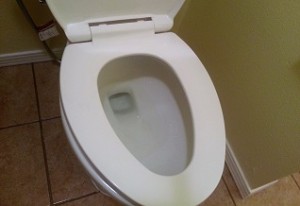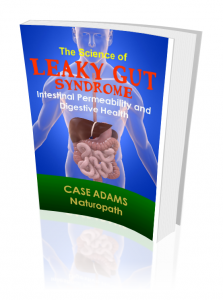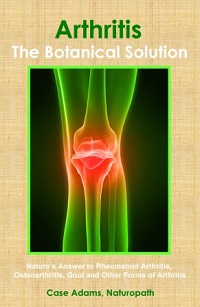Fecal Transplants Transfer Viruses, Cause Fevers
 Years ago when I first heard about fecal transplants, I was concerned. Sure, fecal transplants can implant the gut probiotics from a healthy person to a person with intestinal problems. And this has been shown to be useful for Clostridium difficile infections.
Years ago when I first heard about fecal transplants, I was concerned. Sure, fecal transplants can implant the gut probiotics from a healthy person to a person with intestinal problems. And this has been shown to be useful for Clostridium difficile infections.
For those of you who are wondering what a fecal transplant is: It is when the poop of a donor is transplanted into the colon of a recipient. The poop will be diluted with saline and pumped up the colon to the recipient.
The donor and recipient will typically not be identified to each other to maintain privacy. This of course keeps the poop recipient from knowing the specifics about the donor.
Fecal transplants are a big hit with many doctors, because Clostridium difficile infections have been treated with great success rates – a 2014 review calculated a 90 percent success rate.
But the question I and others have had is: What else will be implanted with that transplant? After all, poop is the body’s waste matter. It is one of the body’s means for removing toxins.
This includes whatever microbe the donor may have within their gut. This means pathogenic bacteria, yeasts and viruses that the person may have been harboring – possible for years.
Poop screening before fecal transplants
Yes, doctors who perform fecal transplants say fecal transplants are safe because the donor’s poop is carefully screened. They will typically screen the donor’s poop for HIV, syphilis, hepatitis A, B and C, and Helicobacter pylori infections – and sometimes for known bacteria issues such as clostridium difficile.
But what about the other microbes – including yeasts and viruses – that are not tested for, or well known or hard to pick up during testing?
For example, yeasts can become sporulated long after their colonies have become depleted. These spores may lie dormant and then wake up to form colonies of yeasts under the right conditions.
And viruses can become dormant within the host – only to wake up when the environment for their regrowth is signaled within the body – or when transferred to another body.
This in fact, has been shown in a recent study.
Viruses transmitted in fecal transplants
The question of whether viruses can be transmitted during fecal transplants was answered by a recent study from the Perelman School of Medicine at the University of Pennsylvania. The researchers analyzed fecal transplants from a healthy donor to three children. Each of the children had chronic ulcerative colitis. Each child received between 22 and 30 fecal transplants.
Principle researcher Dr. Frederic Bushman – a professor at University of Penn – stated the unknown factor involved in fecal transplants:
“The donors are screened very extensively for GI diseases and other infectious diseases, however you worry about the unknown unknowns, infectious agents that might be bad, but not screened for.”
The researchers conducted genetic analyses of the donor’s poop, specifically towards viral particles. For viruses found in the donor’s poop, they established a genetic configuration – a config for each virus.
The researchers found evidence for the transfer of viral particles between the donor and recipient. In other words, they found evidence of viruses in the donor’s poop, and saw that the recipients had traces of these same viral particles in their guts.
The study paper stated:
“Viral contigs present in the donor could be readily detected in recipients, with up to 32 different donor viral contigs appearing in a recipient sample.”
While the specific viruses found from this particular donor were not considered infectious to humans, the potential was evident, according to Dr. Bushman:
“We could see bacterial viruses moving between humans and we were able to learn some things about transmission, but we did not see any viruses that grow on animal cells that may be of concern for infecting and harming patients. We saw mostly temperate bacteriophages.”
While a temperate phage may be considered safe for the time being, this is a dormant state. Under the right conditions, the virus phage can begin a viral transmission.
Dr. Bushman also commented on this aspect:
“We speculate that the temperate replication style exists, in part, to promote virus dispersal, to allow viruses to reach new environments where they can flourish,”
In other words, temperate viral phages are designed to handle such a transfer from one person to another via fecal matter.
For example, many viruses are transferred via fecal contact, even from donors that do not have an obvious infection of that virus. They may be simply a carrier for a temperate viral phage.
Fevers, CRP increase result from fecal transplants
Then of course there is the issue of toxins. The liver and blood dumps many toxins into the colon to be disposed of with our poop. Are fecal transplant doctors sure that these toxins will not harm the health of the gut or liver on a long-term basis?
Researchers from the Medical University Vienna studied five patients who received fecal transplants over a twelve week period. Each patient had acute ulcerative colitis.
Not all the patients responded well. One patient did have a “positive clinical response” after the twelve week period according to the researchers. Good, but one out of five isn’t that good.
However, the fecal transplants caused fevers in the patients. They also increased the patients’ levels of C-reactive protein according to blood testing.
C-reactive protein is one of the body’s inflammatory responses. Something that can damage the blood vessels or organs will illicit a CRP response. Often high CRP levels indicate heart disease for this reason.
While the elevated CRP levels were temporary, it is concerning – along with their fevers. This means the body was receiving toxins from the fecal transplants.
What about the microbiome?
Another concern I have about fecal transplants – one that may not be answered for a few years: Can a person’s microbiome become unstable on a long-term basis following a series of fecal transplants? After all, each of us has a unique microbiome – though there are similarities among ancestry, location, diet and so on.
A person’s microbiome begins at the birthing canal, when microbes begin to colonize the infant. The immune system and their developing microbiome develop with synchronicity, as the body begins to recognize certain strains and species. Gradually, the body’s immunity and gut microbiome will begin to work together to identify and remove toxins.
Yes, we have many similar species and strains. But there are also unique species and strains – and colony sizes – that are monitored by the immune system.
Shooting a different microbiome from one body to another in the form of waste matter may well end up shaking up the body’s future immunity. We don’t know this yet, as fecal transplants are still a relatively new thing.
The researchers in the study above also stated that the stability of the microbiome donated by fecal transplantation was unstable in the recipients. The researchers noted some of the bacteria that created instability:
“This augmentation was marked by successive colonization of donor-derived phylotypes including the anti-inflammatory and/or short-chain fatty acid-producing Faecalibacterium prausnitzii, Rosebura faecis, and Bacteroides ovatus. Disease severity (as measured by the Mayo score) was associated with an overrepresentation of Enterobacteriaceae and an underrepresentation of Lachnospiraceae.”
Okay, this may sound like Greek to many readers. No worries. The point is that the microbiome is complicated – and it is unique from person to person. The precise assembly of bacteria, yeast and viruses in one person’s gut will often differ sharply with another person’s gut.
This issue is also underscored by another study – done in 2013. Here researchers from the University of Maryland School of Medicine followed and analyzed 14 pairs of donors and recipients who had positive results from fecal transplants. Their study tested the microbiomes of the patients up to one year after their fecal transplants.
The researchers from that the fecal transplants resulted in increased diversity of micobes within the recipients. This is a good sign because infections with C. difficile and others have been linked with reduced microbe diversity in the gut. This is often created with a course of antibiotics.
The researchers also found significant microbiome changes among the patients, making the patients’ microbiomes similar to the donors’:
“Fecal transplantion predominantly affects Firmicutes and Proteobacteria, and that the fecal microbiota continues to change in post-fecal transplant patients.”
The researchers also found that despite the fact that the fecal transplants helped most of the patients resolve their C. diff infections – they continued to be more susceptible to a future C. diff infection.
Fecal transplantation is still a relatively unknown practice. We still don’t fully understand our microbiome. The science is still evolving.
Personally, I could see fecal transplants as being part of urgent care – in life-threatening situations of C. diff infections for example. But there are still risks, but these have to be weighed if someone is at risk of death.
For other cases, there is still no hard evidence that fecal transplants are useful for ulcerative colitis, Crohn’s disease and others gut issues. There are many anecdotal reports, but no long-term clinical research to this author’s knowledge.
Besides, I think there are far safer strategies that can accomplish great results in the gut. In my opinion, focusing upon growing ones own healthy gut probiotics with a good prebiotic diet, together with supplementing cultured probiotic strains with cultured foods and supplements provide a safer and more sustainable strategy – with fewer unknowns.
REFERENCES:
Chehoud C, Dryga A, Hwang Y, Nagy-Szakal D, Hollister EB, Luna RA, Versalovic J, Kellermayer R, Bushman FD. Transfer of Viral Communities between Human Individuals during Fecal Microbiota Transplantation. MBio. 2016 Mar 29;7(2). pii: e00322-16. doi: 10.1128/mBio.00322-16.
ASM. Nonpathogenic Viruses Transferred During Fecal Transplants. ASMsociety Press Release. March 29, 2016.
Angelberger S, Reinisch W, Makristathis A, Lichtenberger C, Dejaco C, Papay P, Novacek G, Trauner M, Loy A, Berry D. Temporal bacterial community dynamics vary among ulcerative colitis patients after fecal microbiota transplantation. Am J Gastroenterol. 2013 Oct;108(10):1620-30. doi: 10.1038/ajg.2013.257.
Matsuoka K, Mizuno S, Hayashi A, Hisamatsu T, Naganuma M, Kanai T. Fecal microbiota transplantation for gastrointestinal diseases. Keio J Med. 2014;63(4):69-74. doi: 10.2302/kjm.2014-0006-RE.
Song Y, Garg S, Girotra M, Maddox C, von Rosenvinge EC, Dutta A, Dutta S, Fricke WF. Microbiota dynamics in Microbiota dynamics in patients treated with fecal microbiota transplantation for recurrent Clostridium difficile infection. PLoS One. 2013 Nov 26;8(11):e81330. doi: 10.1371/journal.pone.0081330.


















